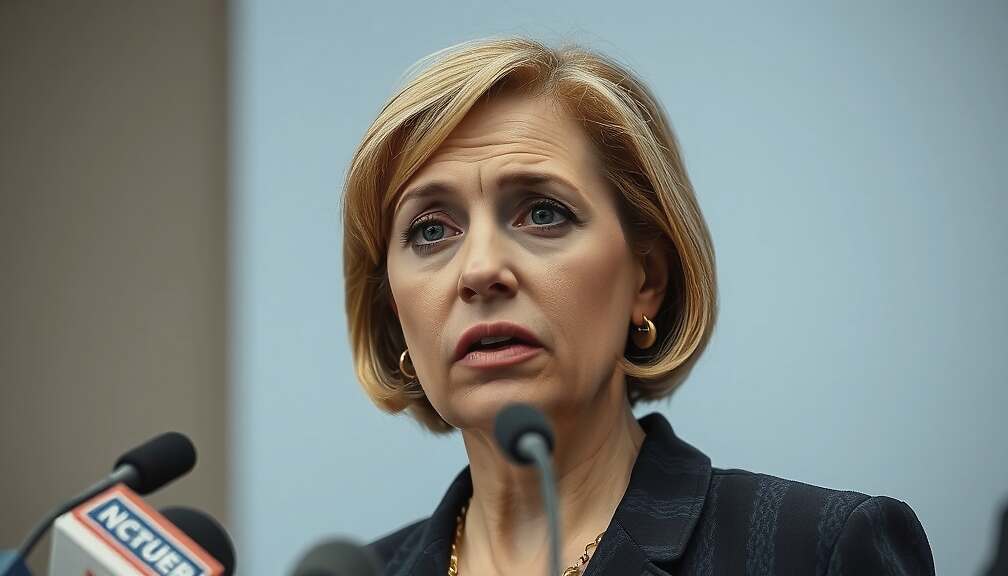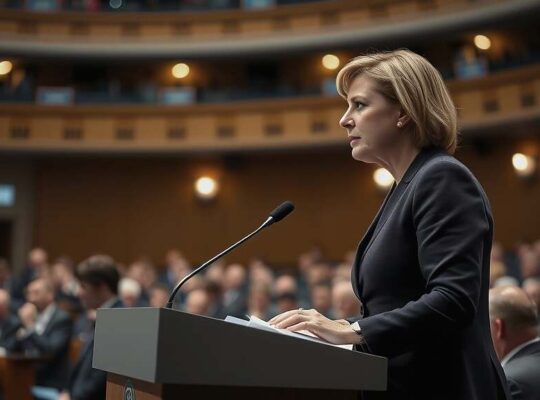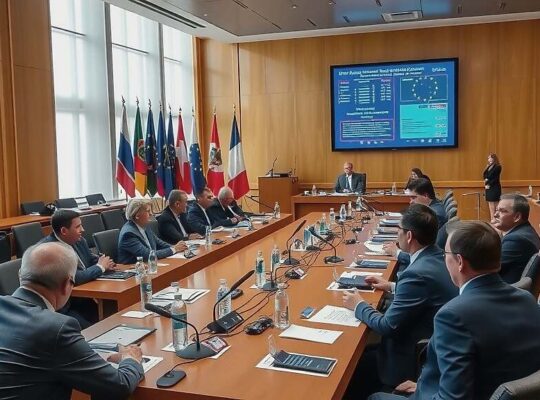The Minister-President of Mecklenburg-Vorpommern, Manuela Schwesig (SPD), has publicly voiced concerns regarding the political handling of the nomination of Frauke Brosius-Gersdorf for the Federal Constitutional Court. Speaking to RTL and ntv on Friday, Schwesig expressed a lack of understanding for what she perceives as a damaging debate surrounding the candidate. She urged the CDU/CSU to uphold prior agreements and vote in support of the SPD’s nominee. Emphasis was placed on the need for a unified position within the CDU/CSU ranks, referencing the capabilities of figures like Health Minister Spahn and CDU leader Merz.
Schwesig underscored the established protocol for personnel selections, noting that agreement had been reached beforehand without public criticism. She emphasized the importance of the CDU/CSU demonstrating reliability, particularly given the necessity for coalition partners to function effectively.
The remarks came ahead of deliberations in the Bundesrat concerning the “Investment Booster” and the special asset fund for infrastructure, with Schwesig defending both initiatives despite their significant costs. She argued that these measures represent vital stimulus packages needed to counter a third consecutive year of economic recession in Germany. Investment Minister Lars Klingbeil has acted swiftly to provide these crucial economic impulses and importantly, has ensured that municipalities will not bear the financial burden of the “Investment Booster” through tax shortfalls. A broad consensus within the Bundesrat is therefore anticipated.
Acknowledging that the substantial financial commitments will place added pressure on public finances in the coming years due to interest and repayment obligations, Schwesig maintained that the current lack of economic growth poses a more significant challenge. Reduced growth leads to lower tax and social security revenue, negatively impacting public budgets. She argued that stimulating economic growth will ultimately benefit public finances. While acknowledging the need for fiscal prudence, Schwesig indicated that the government should remain committed to planned coalition projects, including the increased commuter allowance and reduced value-added tax in the restaurant sector.












